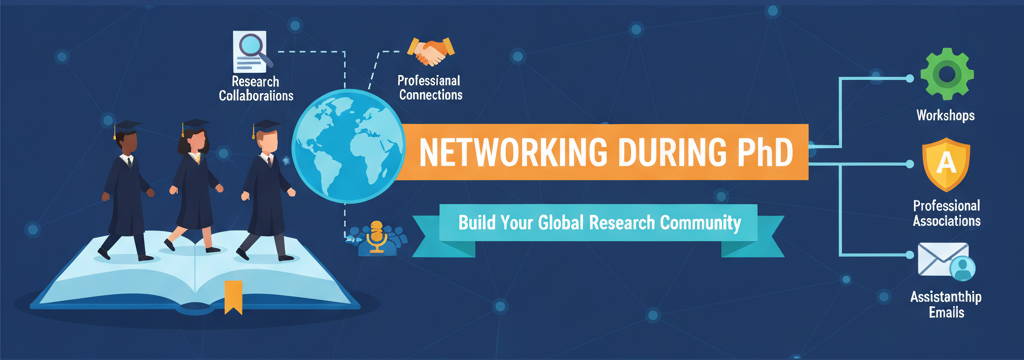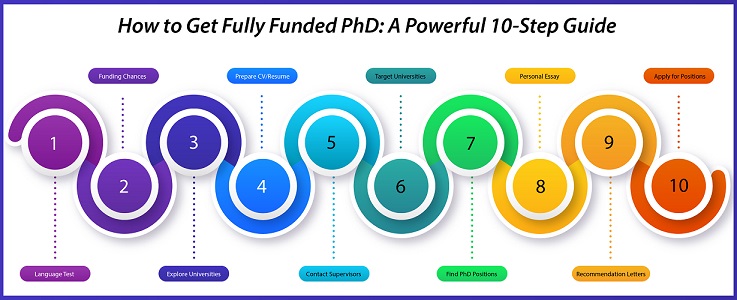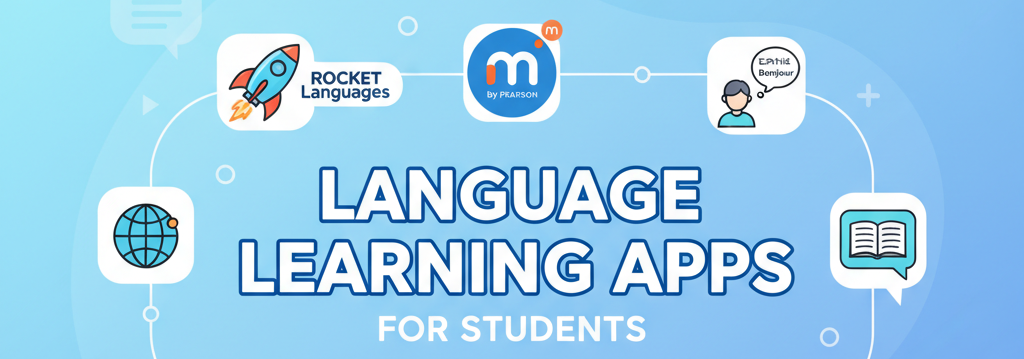
Networking during PhD studies, both within academia and research communities, is an essential part of building a successful academic and professional career. Each networking strategy is primarily based on supervisor outreach. Effective networking during PhD can open doors to valuable research collaborations, mentorship opportunities, and long-term professional connections. The most effective strategy to strengthen your network is attending departmental seminars and workshops, as well as (inter)national conferences, congresses, and symposiums. Other strategies include engaging in inter-faculty, national, or global research collaborations, joining professional associations, and even sending an assistantship email to professors whose work aligns with your interests. Developing networking and professional skills throughout the PhD journey enhances your academic profile and broadens your future career prospects.
Networking During PhD via Assistantship Emails
Whether you have secured a partially funded PhD, a fully funded PhD, or a self-funded PhD, you may still send assistantship emails, as this is a valuable strategy for creating excellent opportunities for networking during PhD. Imagine you are a PhD student with partial financial aid, aiming to upgrade to full funding by seeking a research assistantship (RA) in a supervisor’s laboratory. In another scenario, you may be self-funding your PhD and seeking partial or full funding through an RA. Even if you already receive a stipend from a PhD scholarship in Australia or a research-based fully funded PhD in USA, you might still explore teaching assistantships (TAs), also known as tutoring roles, to earn additional stipend and teaching experience.
In all these situations, crafting a strong assistantship email (cold supervisor outreach) can open doors to valuable assistantship opportunities. More supervisors within your department and faculty will become familiar with your name, enhancing your academic network. Joining a supervisor’s group can expand your professional circle to include postdocs, PhD candidates, master’s students, and other research staff, fostering potential research collaborations. Securing TA positions not only strengthens your connection with supervisors but also builds relationships with undergraduate and master’s coordinators, lecturers, and senior academics in the department, greatly increasing your chances of future teaching opportunities. In every case, these experiences significantly contribute to building a strong and well-connected academic profile.
Networking During PhD via Research Collaborations
In addition to sending assistantship emails, reaching out to other research groups within your university, e.g., group leaders or senior members like postdoctoral researchers and final-year PhD candidates, is another powerful way of networking during PhD studies. These connections can lead to departmental, inter-faculty, and university-wide research collaborations, fostering knowledge exchange and interdisciplinary learning. Expanding your network beyond your institution is equally important. Engaging with research groups at other universities or prestigious institutes, such as the Institut Pasteur or CSIRO, can open the door to national and international collaborations. This is a two-way strategy: effective networking during PhD often leads to joint research projects, conference presentations, and co-authored publications, while successful collaborations, in turn, strengthen and expand your professional network.
These partnerships may lead to developing advanced lab-scale technologies, publishing high-impact papers, co-authoring review articles, registering patents, or even contributing to groundbreaking discoveries that push scientific boundaries. Such collaborations and the accomplishments gained through them not only help you build an outstanding academic resume but also make it easier to secure postdoctoral positions in academia or research-oriented roles in industry and innovative companies through the network you have established. The research output, visibility, and recommendations from these collaborations can also strengthen your applications for prestigious postdoctoral fellowships and future research grants, such as the Marie Curie Postdoctoral Fellowship in Europe, the Discovery Early Career Researcher Award (DECRA) in Australia, and the Fulbright Scholarship in the USA.
Networking During PhD via Conferences, Congresses, and Symposia
Expand your professional network by actively participating in national and international scientific events such as conferences, congresses, and symposiums. Presenting your research findings at these gatherings enhances your visibility within the academic community. This also enables you to reach a wider audience outside of academia. Networking during PhD at these events, through conversations with research supervisors, fellow researchers, and industry professionals, can open doors to future collaborations and job opportunities. Approaching principal investigators and research supervisors (assistant, associate, and full professors) is a crucial step toward expanding your academic network. Never underestimate these opportunities; one day, often when least expected, you will realize how the connections you built at these scientific events have shaped your academic and professional journey.
Networking During PhD Within Professional Associations
Joining professional associations in your field is one of the most effective ways to strengthen your networking during PhD. Membership provides access to exclusive resources, journals, and research communities that help you stay current with trends in your discipline. Associations such as the American Chemical Society (ACS), the Royal Australian Chemical Institute (RACI), the Canadian Society for Civil Engineering (CSCE), and the European Physical Society (EPS) offer excellent platforms for building professional connections. Participate in committee meetings, annual conferences, and specialized working groups to meet experts and peers in your area of research. These activities not only expand your professional network but also increase your visibility and credibility within your academic and scientific community.
Networking During PhD in Departmental Seminars/Workshops
During PhD studies, departmental seminars and workshops provide some of the most beneficial networking opportunities. Regular seminars with national and international speakers are held by faculties and departments, providing PhD students with an opportunity to interact directly with top researchers and possible collaborators. You can greatly grow your academic network by going to these events, posing intelligent queries, and introducing yourself following presentations. Research is also highly visible through departmental, national, and international competitions like the Three Minute Thesis (3MT). To foster a collaborative, learning, and professional relationship-building environment, numerous universities also host workshops specifically designed for PhD students that concentrate on data analysis, research communication, or career development.
Networking During PhD Using Social Media
Another effective strategy to improve your networking during your PhD is to use social media strategically. You can share research updates, follow experts, and participate in discussions about new scientific topics on websites like X (formerly Twitter), LinkedIn, and ResearchGate. Establishing a professional online presence can lead to job offers, mentoring opportunities, and collaborations. To keep in touch with the international research community, join hashtags or topic-specific groups associated with your field of study. You can establish yourself as a respected authority in your field by regularly sharing updates on your work, publications, and conference participation. In addition to academic networking, social media networking facilitates connections with professionals, business executives, and other researchers around the globe.

Conclusion
Effective networking during PhD is more than just meeting people; it is about building meaningful professional relationships that can shape your academic and career trajectory. Every relationship you make with supervisors, whether via conferences, professional associations, or assistantship emails, helps you succeed in the long run. You can increase your visibility, find mentors, and open up future opportunities by actively participating in seminars, workshops, and cooperative research projects. In addition to partnerships and stipend opportunities, networking builds self-esteem, communication abilities, and a positive academic community. You lay a solid basis for postdoctoral positions, research fellowships, and a variety of career paths in academia and beyond by continuously devoting time and energy to expanding your network during your PhD journey.
Frequently Asked Questions (FAQs)
How early should I start networking during PhD?
Start as early as possible, ideally within the first few months. Building connections early helps you find mentors, collaborators, and research opportunities throughout your PhD journey.
What’s the best way to approach professors for assistantships?
Write a concise, respectful email highlighting your research interests, skills, and alignment with their work. Personalize each email to show a genuine interest in their research.
How can I network effectively at conferences?
Prepare short introductions about your work, ask thoughtful questions, attend social sessions, and follow up with people on LinkedIn or via email after the event.
Is social media really useful for academic networking?
Yes. Platforms like LinkedIn, X (Twitter), and ResearchGate help you share your research, follow thought leaders, and engage in academic discussions beyond your university.
What if I’m an introvert or find networking uncomfortable?
Start small! Attend seminars, ask one or two questions, or connect online first. Over time, confidence grows naturally as you engage with supportive academic communities.






Leave Your Comment